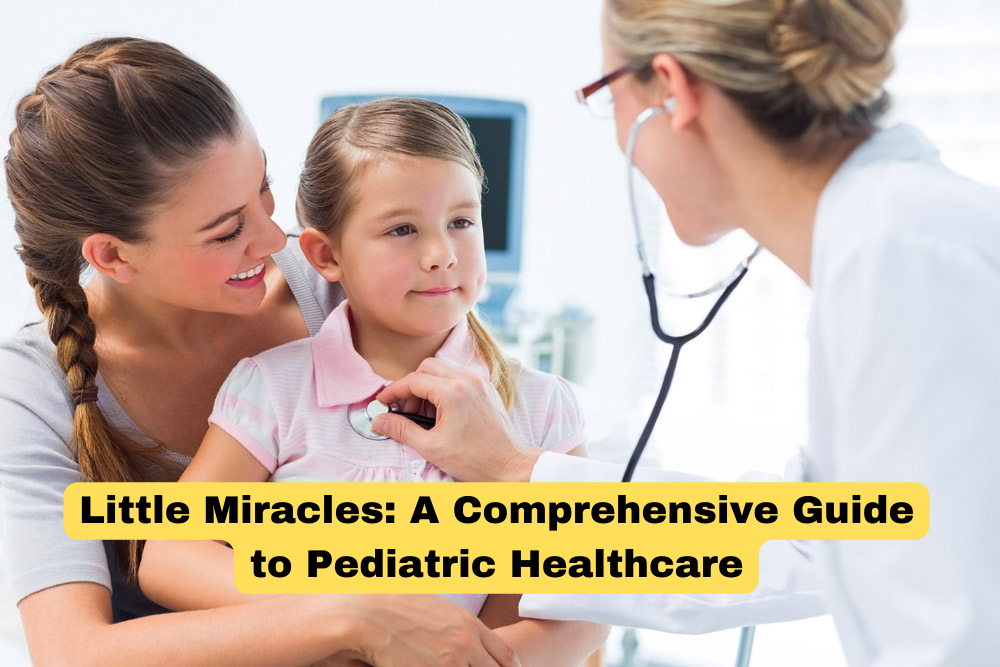Pediatric healthcare is a specialized branch of medicine dedicated to the health and well-being of children and adolescents. From newborns to teenagers, pediatricians and healthcare professionals play a crucial role in ensuring that our youngest generation grows up healthy and happy. This comprehensive guide explores the world of pediatric healthcare, covering topics related to child development, vaccinations, pediatricians, common childhood illnesses, and child wellness. By the end of this blog, you’ll have a deep understanding of the importance of pediatric healthcare and how to support the health and growth of our future leaders.
Section 1: The Significance of Pediatric Healthcare
1.1 The Unique Needs of Children Examine why pediatric healthcare is distinct and essential for the well-being of young patients.
1.2 Early Years and Lifelong Health Highlight how pediatric healthcare can impact a child’s health throughout their life.
Section 2: Child Development and Milestones
2.1 Infant Development Discuss key developmental milestones during the first year of life, from motor skills to cognitive growth.
2.2 Toddler and Preschool Years Examine the developmental stages and milestones in toddlers and preschool-aged children.
2.3 School-Aged Children and Adolescents Highlight the physical, emotional, and social development of older children and adolescents.
Section 3: The Role of Pediatricians
3.1 The Pediatrician’s Expertise Explain the specialized training and expertise of pediatricians in caring for children.
3.2 Well-Child Visits Discuss the importance of well-child visits for monitoring growth, development, and preventive care.
3.3 Choosing a Pediatrician Provide guidance on selecting the right pediatrician for your child’s healthcare needs.
Section 4: Childhood Vaccinations
4.1 The Importance of Vaccinations Highlight the significance of vaccinations in preventing serious childhood diseases.
4.2 Vaccine Schedule Examine the recommended vaccination schedule for children and the diseases they protect against.
4.3 Addressing Vaccine Concerns Discuss common concerns about vaccines and provide evidence-based information.
Section 5: Common Childhood Illnesses
5.1 Respiratory Infections Examine common respiratory illnesses in children, including colds, flu, and asthma.
5.2 Childhood Infections Discuss contagious infections like strep throat, ear infections, and chickenpox.
5.3 Childhood Chronic Conditions Highlight conditions like allergies, diabetes, and ADHD that require ongoing management.
Section 6: Child Wellness and Nutrition
6.1 Nutrition for Growth Examine the importance of proper nutrition in child development and healthy eating habits.
6.2 Childhood Obesity Discuss the prevalence of childhood obesity and strategies for prevention.
Section 7: Pediatric Mental Health
7.1 Child and Adolescent Mental Health Highlight the importance of addressing mental health issues in children and adolescents.
7.2 Warning Signs Discuss common signs of mental health challenges in young patients.
7.3 Support and Resources Provide information on accessing mental health resources for children and families.
Section 8: Preventive Care and Safety
8.1 Child Safety Discuss measures to keep children safe, including car seat safety and home safety tips.
8.2 Preventive Care Guidelines Examine guidelines for preventing accidents, injuries, and illnesses in children.
Section 9: Supporting Children with Special Healthcare Needs
9.1 Children with Disabilities Highlight the unique challenges and resources available for children with disabilities.
9.2 Pediatric Palliative Care Examine the importance of palliative care for children with serious illnesses.
Section 10: The Future of Pediatric Healthcare
10.1 Advances in Pediatric Medicine Explore emerging technologies and medical innovations in pediatric healthcare.
10.2 Telemedicine for Pediatric Care Discuss the role of telemedicine in providing remote healthcare services to children.
Conclusion:
Pediatric healthcare is a beacon of hope for children and their families, ensuring that our youngest generation has the best start in life. Whether you’re a parent, caregiver, or simply interested in the world of pediatric health, understanding the nuances of pediatric healthcare is essential. This comprehensive guide has equipped you with knowledge about child development, vaccinations, the role of pediatricians, common childhood illnesses, and child wellness. Embracing the importance of pediatric healthcare is a journey toward ensuring that every child has the opportunity to thrive, grow, and fulfill their potential in a world full of possibilities.
